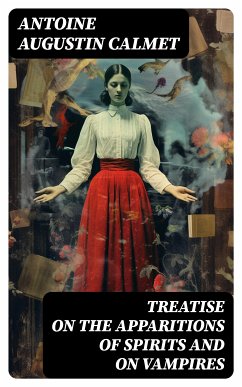In his landmark work, "Treatise on the Apparitions of Spirits and on Vampires," Antoine Augustin Calmet delves into the complex phenomena of supernatural experiences, meticulously analyzing the historical, theological, and cultural contexts surrounding spirits and vampires. Written in the early 18th century, Calmet employs a scholarly approach laced with narrative vividness, reflecting the duality of enlightenment rationalism and the lingering fascination with the occult. His thorough collection of folklore, scholarly references, and personal accounts reveals not only the societal fears and beliefs of the era but also critiques the metaphysical assertions underpinning these supernatural claims. Antoine Augustin Calmet, a Benedictine monk and theologian well-versed in philosophy and theology, was deeply influenced by the spiritual uprising of his time, particularly the intersections of faith and reason. His ecclesiastical background provided him with a unique lens through which to evaluate the nature of the supernatural, capturing the tensions between emerging scientific thought and traditional beliefs. Calmet's dedication to understanding the unknown stems from his pursuit of truth amidst the growing ambivalence towards the supernatural in the Enlightenment tradition. Calmet's "Treatise on the Apparitions of Spirits and on Vampires" is an essential read for anyone interested in the historical interplay between faith and superstition, inviting readers to explore the lingering questions of existence that persist beyond empirical reasoning. It serves as a fascinating window into 18th-century thought, making it indispensable for scholars, historians, and enthusiasts of the supernatural.
Dieser Download kann aus rechtlichen Gründen nur mit Rechnungsadresse in A, B, BG, CY, CZ, D, DK, EW, E, FIN, F, GR, H, IRL, I, LT, L, LR, M, NL, PL, P, R, S, SLO, SK ausgeliefert werden.









